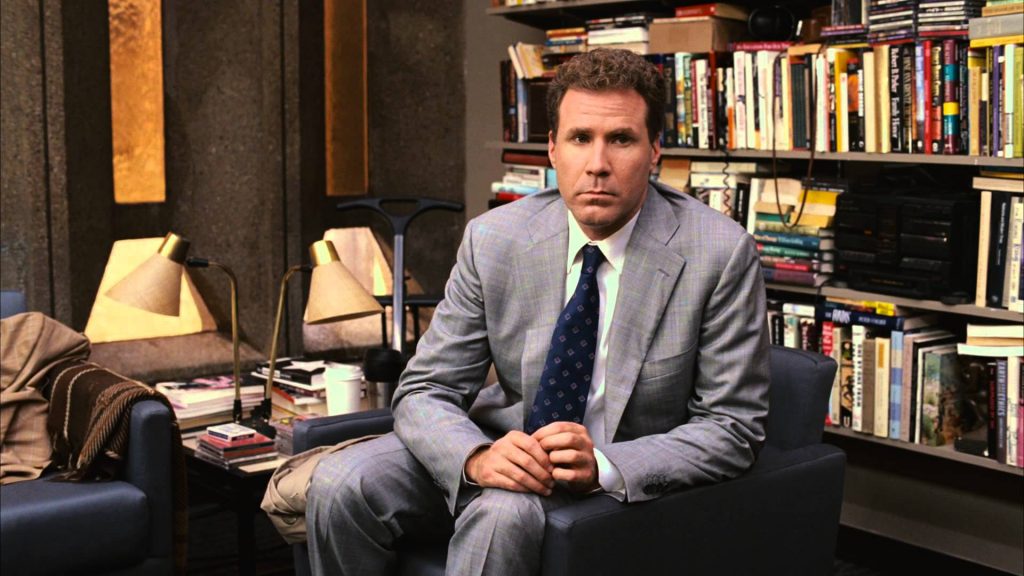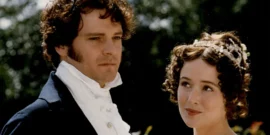Reading classic literature to young children helps form their imagination and moral judgment. And it's more important today than ever.
Dying for Beauty in Stranger than Fiction
After watching Elf for the umpteenth time, my son mentioned it is the only Will Ferrell film he can stand to watch, Ferrell being too far “over the top” in his other films. While I confess I’m not an aficionado of Ferrell’s films, I suggested my son watch Ferrell in Stranger than Fiction, a 2006 film in which Ferrell also demonstrates that less is more. (Spoilers below.)
In Stranger than Fiction, IRS agent Harold Crick (Ferrell) wakes up one morning to hear his life being narrated by an authorial voice (Emma Thompson). The narrator keeps getting everything right about his life and his thoughts. This, naturally, disturbs Harold. Given the narrator knows Harold inside out, he becomes concerned when, after he resets the time on his watch, he hears the narrator observe, “Little did he know that this simple, seemingly innocuous act would result in his imminent death.”
In addition to changing aspects of his all-too-linear life as an IRS agent, Harold begins a search for the narrator. In doing so, Harold approaches Jules Hilbert (Dustin Hoffman), a literature professor at a local university. With Hilbert’s assistance, Harold ultimately identifies the author as Karen Eiffel (Emma Thompson). Eiffel writes well-regarded novels in which the main character always dies tragically. After wrestling with writer’s block, Eiffel finally figures out how she will kill off Harold in the book. She writes out the ending on a yellow pad and begins to type it up when Harold finally finds her phone number (in an old tax file) and calls her. They then meet. Harold naturally expects Eiffel to change the story so he doesn’t die. She resists. At the behest of her assistant (Queen Latifah)—sent by the publisher to help her through her writer’s block—she gives Harold the typed pages and the hand-written ending.
Harold gives the manuscript to Hilbert to read. When Harold meets with Hilbert the next day Hilbert informs Harold that the story is so good that Harold must die: The novel is a masterpiece and the story won’t work without Harold’s death. Dustin Hoffman does a great job delivering the lines of a cold-blooded academic, providing Harold reason after reason he should be reconcile himself to his imminent death for the sake of the novel.
Harold is naturally taken aback by Hilbert’s position. He expected Hilbert to help him live. Harold then takes the novel and reads it at one sitting while riding on a city bus. After reading it through, Harold meets up with Eiffel and returns the manuscript. He tells her, “I read it, and I loved it. And there’s only one way it can end. . . . I think you should finish it.”
After reading the novel Harold agrees with Hilbert: He must die for the sake of the story.
It’s a good screenplay, not least because of the characters and their interaction. Yet it is the philosophical question that is most diverting: What is appropriate to sacrifice for aesthetics?
We are at first shocked with Hilbert’s cold-blooded argument that Harold should sacrifice himself for the integrity of the novel. Yet after reading the novel, Harold himself takes the edge off Hilbert’s cold bloodedness by agreeing with him. It’s one thing for the academic to tell the victim to reconcile himself to being sacrificed for the sake of art; it is quite another thing for the victim himself—the one with rather more skin in the game—to accept the sacrificial tradeoff as worthwhile.
Here, as well, the screenplay parallels the fictional novel. In the screenplay Eiffel rewrites the novel’s conclusion so that Harold lives (even if banged up in the process). Eiffel then shares the rewritten story with Professor Hilbert. After reading the rewritten conclusion Hilbert is deflated. “It’s o.k. It’s not bad. It’s not the most amazing piece of English literature in several years. But it’s o.k.” Eiffel responds, “I think I’m fine with o.k. . . . If the man knows he’s going to die, but dies anyway, dies willingly knowing he could stop it, I mean, isn’t that the type of man you want to keep alive?”
It’s a pretext that makes the film a comedy rather than a tragedy. Nonetheless, as my daughter observed, “Harold should have died.” It would have been a great film had Harold died—and almost certainly a far less popular one. But this ending would have offered a far more provocative storyline.
And not provocative simply for being tragedy rather than comedy. It would be provocative for affirming the radical transcendence of beauty. We are familiar with self-sacrifice, and sacrifice of others, for the true and the good even when, at times, we understand the unwillingness to do so. While the suffering artist is a familiar trope, sacrifice of others for the mere principle of objective beauty is less familiar. Today most of us evaluate beauty in emotive terms, as something one “likes” or “doesn’t like,” even when we affirm the existence of objective truth and morality.
Hilbert, and then Harold, stake out a claim: objective beauty is worth dying for. To be sure, Harold has a bit more at stake in this conclusion than Hilbert does, but Harold nonetheless pitches in. While I can understand Eiffel’s reticence to kill off Harold—and I am sure I would make the same decision—we all know it’s for lack of conviction on Eiffel’s part. It’s (almost) a self-denying proposition to say one will not sacrifice a person to beauty so that there will be a person around who would willingly sacrifice himself for beauty.
Stranger than Fiction tells a fetching story. More, however, it presses our beliefs about the transcendence of beauty in the modern age.



